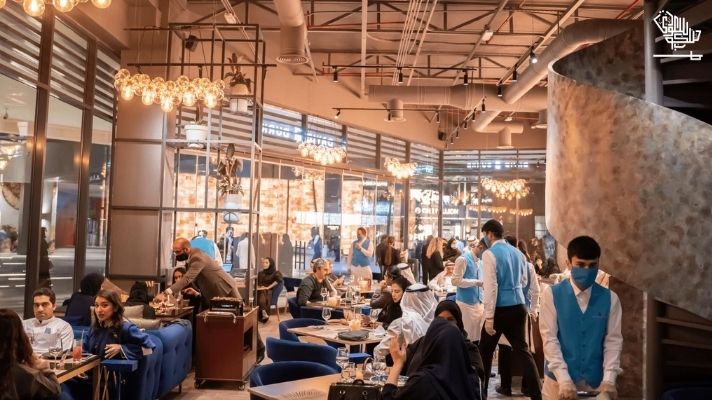Riyadh — The Ministry of Municipal and Rural Affairs announced a considerable increase in commercial licenses issued for restaurants, coffee shops, and other eateries.
This increase manifests the boom and enhanced commercial activities witnessed all over Saudi Arabia, following the Kingdom’s successful fight against coronavirus and lifting the pandemic-related health restrictions and preventive measures.
The licenses issued for restaurants and related services increased 56.44 percent. In comparison, buffets and cafeterias registered a rise of 96.91 percent, whereas the licenses for catering services shot up by 89.22 percent.
Recommended: The Top 10 Countries With The Best Food
The ministry stated that the licenses issued for the activities of beverage and coffee shops registered an increase of 93.51 percent. The increase in men’s clothing and tailoring shops was at around 99.7 per cent, while that of automated bakeries stood at 61.77 percent.
New licenses for fast food outlets also posted an increase of 48.60 percent. Meanwhile, other sectors that showed a rise include:
- Laundry and dry cleaning at 44.31 percent.
- Men’s salons at 99.92 percent.
- Groceries at 49.62 percent.
At the same time, licenses for renovations of residential and non-residential buildings registered an increase of 33.97 percent, Al-Eqtisadiah newspaper reported.
A significant requirement for issuing a license is to exhibit the document in a prominent place on the facility premises. It is prohibited to use the permit for another purpose.
It’s not allowed to change the commercial activity or modify the office space by making any additions or deletions without obtaining approval from the concerned municipality.
It is not allowed to misuse the licensed facility for activities that create discomfort or harm public health or the environment. A rental contract is required if the applicant is a tenant.
Issuing a new license requires a commitment to address the needs of disabled people. Facilitating their movement and ensuring the availability of appropriate facilities.
DISCLAIMER: The images/videos/logos showcased on this page are the property of their respective owners. We provide credit and sources wherever possible. However, If you find that your image/video is displayed on this blog without authorization, please contact us with the relevant details and a link to the image, and we will promptly address your concerns.




